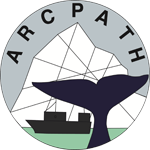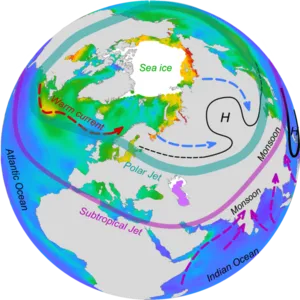Climate Teleconnections and Predictions: Past, Present and Future.
With the Folgefonn glacier in the background and located in a typical Norwegian fjord landscape, the town of Norheimsund is a perfect setting for the ARCPATH - CONNECTED summer school.
The projects ARCPATH and CONNECTED will jointly organize a summer school with a cross-disciplinary focus related to the projects' research. The summer school is open to graduate students (Masters, PhD) and Postdoctoral scientists.
If you apply and qualify, you will be granted full coverage of accommodation, meals, study materials, local excursions and local transportation to/from the hotel.
You will be responsible for your own transport between home and summer school connection point (BGO Flesland Airport, overseas flight or equivalent), e.g. by support from your lab.
In total 36 places are available. In case of overassignment, qualified applicants affiliated with the ARCPATH or CONNECTED partners will have priority.
Dates: 30 June - 6 July, 2018
Venue: Thon Hotel Sandven, Norheimsund - Norway
Main Theme: Climate Teleconnections and Predictions: Past, Present and Future
Application deadline : April 22
Background
Global surface temperature increased by around 1°C since early 20th century. Superposed on this warming trend were pronounced decadal to inter-decadal fluctuations. Similarly, decadal to multi-decadal variations in monsoon systems and Arctic climate have been also recorded. These interdecadal shifts have great influences on weather and climate. In recent decades, Arctic warmed much faster than other latitudes, with a warming magnitude of approximately twice as large as the Northern Hemisphere average. Arctic warming has been linked to local radiative process, heat and moisture transports (both ocean and atmosphere) from lower latitudes. Although Arctic warming implies a melting sea ice cover, the change in sea ice can have strong feedback on overlying atmosphere. Observational and numerical studies have suggested reduction of Arctic sea ice likely can have impact on climate and extreme weather over the Northern Hemisphere, such as European summer precipitation, East Asian monsoon changes, Eurasian cold winters. What is the relation between the variability in the different regions and how this relation can benefit the climate predictions will be the main topic for this summer school.
The ARCPATH / CONNECTED summer school aims to provide young researchers (Ms and PhD students/postdocs) with an exciting survey of recent developments in the area of climate teleconnections between the high and the lower latitudes and climate predictions. Lectures will be given in the morning and there is time for interactive discussions between senior lecturers and young researchers including graduate students.

